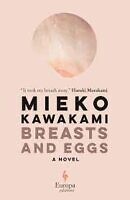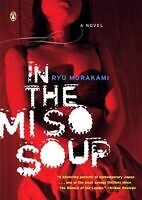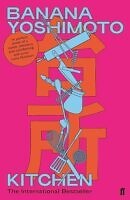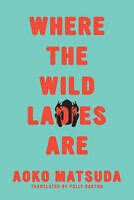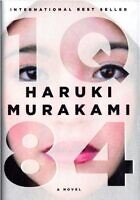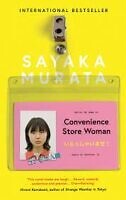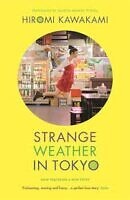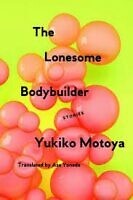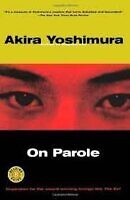Top 10 Modern Japanese Books
 kusama 2
kusama 2
For this reading list we’ve gone post 1970, where we’ve got 10 recommendations for the Best Modern Japanese Books from wonderful Japanese authors writing today.
This post may contain affiliate links that earn us a commission at no extra cost to you.
Top 10 Modern Japanese Books
Breasts and Eggs By Mieko Kawakami
Challenging every preconception about storytelling and prose style, mixing wry humor and riveting emotional depth, Mieko Kawakami is today one of Japan’s most important and best-selling writers.
Breasts and Eggs paints a portrait of contemporary womanhood in Japan and recounts the intimate journeys of three women as they confront their own uncertainties on the road to finding peace and futures they can truly call their own.
It tells the story of three women: the thirty-year-old Natsu, her older sister, Makiko, and Makiko’s daughter, Midoriko. Makiko has traveled to Tokyo in search of an affordable breast enhancement procedure. She is accompanied by Midoriko, who has recently grown silent, finding herself unable to voice the vague yet overwhelming pressures associated with growing up. Her silence proves a catalyst for each woman to confront her fears and frustrations.
In The Miso Soup By Ryu Murakami
Murakami (no, the other one) is most known for his romantic drama/horror novel Audition, which director Takashi Miike adapted into a notoriously gut-wrenching film. Here, the author serves up the quieter, more surreal story of Kenji and Frank, his monstrous American client, and their hair-raising roller-coaster ride through the nefarious neon-lit world of Tokyo’s sex industry
It’s just before New Year, and Frank, an American tourist, has hired Kenji to take him on a guided tour of Tokyo’s nightlife. But, Frank’s behaviour is so odd that Kenji begins to entertain a horrible suspicion: his client may in fact have murderous desires. Although Kenji is far from innocent himself, he unwillingly descends with Frank into an inferno of evil, from which only his sixteen-year-old girlfriend, Jun, can possibly save him.
Kitchen by Banana Yoshimoto
With the publication of Kitchen, the dazzling English-language debut that is still her best-loved book, the literary world realized that Yoshimoto was a young writer of enduring talent whose work has quickly earned a place among the best of contemporary Japanese literature. Kitchen is an enchantingly original book that juxtaposes two tales about mothers, love, tragedy, and the power of the kitchen and home in the lives of a pair of free-spirited young women in contemporary Japan.
A lyrical tale about loss and grief and familial love. When college student Mikage Sakurai is orphaned by the death of her grandmother, she is rescued from loneliness and grief by Yuichi, a young flower shop delivery man, and discovers that families come in many shapes . . . and can be found in many places.
Where The Wild Ladies Are by Aoko Matsuda
All of the stories in Matsuda’s collection are based, loosely, on traditional Japanese stories of yōkai, ghosts and monsters that figure prominently in the country’s folklore. But Matsuda puts her own clever spin on them, and each of her stories feels original and contemporary.
Where the Wild Ladies Are would make for great Halloween reading, although these aren’t the same old horror stories you’ve encountered before — they’re novel, shimmering masterworks from a writer who seems incapable of being anything less than original.
1Q84 by Haruki Murakami
Set in an alternate 1984, the story, at its core, explores the idea that a single decision or action can change an individual’s future. It involves a fringe religious cult, a personal trainer named Aomame who hunts and assassinates men who abuse women, a mathematical genius named Tengo who writes ad copy, and the parallel worlds in which they find themselves.
The novel deals in doubles, exploring the conflict between the rigid rules of religion and the often fluid impulses of our inner selves. Although it’s dense and complex, at its core it’s a surprisingly light love story, as Aomame and Tengo realize they shared a single moment long ago that has marked them ever since, and is so powerful it’s drawing their two worlds together.
Convenience Store Woman by Sayaka Murata
The English-language debut of an exciting young voice in international fiction, selling 660,000 copies in Japan alone, Convenience Store Woman is a bewitching portrayal of contemporary Japan through the eyes of a single woman who fits into the rigidity of its work culture only too well.
Convenience Store Woman is the heartwarming and surprising story of thirty-six-year-old Tokyo resident Keiko Furukura. Keiko has never fit in, neither in her family, nor in school, but when at the age of eighteen she begins working at the Hiiromachi branch of “Smile Mart,” she finds peace and purpose in her life.
A brilliant depiction of an unusual psyche and a world hidden from view, Convenience Store Woman is an ironic and sharp-eyed look at contemporary work culture and the pressures to conform, as well as a charming and completely fresh portrait of an unforgettable heroine.
Strange Weather in Tokyo by Hiromi Kawakami
Tsukiko, thirty–eight, works in an office and lives alone. One night, she happens to meet one of her former high school teachers, “Sensei,” in a local bar. Tsukiko had only ever called him “Sensei” (“Teacher”). He is thirty years her senior, retired, and presumably a widower. Their relationship develops from a perfunctory acknowledgment of each other as they eat and drink alone at the bar, to a hesitant intimacy which tilts awkwardly and poignantly into love.
As Tsukiko and Sensei grow to know and love one another, time’s passing is marked by Kawakami’s gentle hints at the changing seasons: from warm sake to chilled beer, from the buds on the trees to the blooming of the cherry blossoms. Strange Weather in Tokyo is a moving, funny, and immersive tale of modern Japan and old–fashioned romance.
The Lonesome Bodybuilder by Yukiko Motoya
In the English-language debut of one of Japan’s most fearlessly inventive young writers a housewife takes up bodybuilding and sees radical changes to her physique, which her workaholic husband fails to notice. A boy waits at a bus stop, mocking commuters struggling to keep their umbrellas open in a typhoon, until an old man shows him that they hold the secret to flying. A saleswoman in a clothing boutique waits endlessly on a customer who won’t come out of the fitting room, and who may or may not be human. A newlywed notices that her spouse’s features are beginning to slide around his face to match her own.
In these eleven stories, the individuals who lift the curtains of their orderly homes and workplaces are confronted with the bizarre, the grotesque, the fantastic, the alien–and find a doorway to liberation.
The Housekeeper And The Professor by Yoko Ogawa
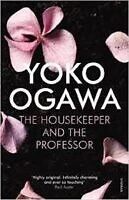
Yoko Ogawa’s The Housekeeper and the Professor is an enchanting story about what it means to live in the present, and about the curious equations that can create a family.
He is a brilliant math Professor with a peculiar problem—ever since a traumatic head injury, he has lived with only eighty minutes of short-term memory.
She is an astute young Housekeeper—with a ten-year-old son—who is hired to care for the Professor.
And every morning, as the Professor and the Housekeeper are introduced to each other anew, a strange and beautiful relationship blossoms between them. Though he cannot hold memories for long (his brain is like a tape that begins to erase itself every eighty minutes), the Professor’s mind is still alive with elegant equations from the past.
On Parole by Akira Yoshimura
A man murders his wife, wounds her lover, and sets the lover’s home-with the lover’s mother in it-on fire. Sixteen years later, 50-year-old Shiro Kikutani, a former high-school teacher serving a life sentence for this crime, is released. In jail, he had thought of nothing but freedom. His release, however, creates a series of obstacles for which he is not prepared. While he continually examines his conscience, he feels no remorse.
On parole, he slowly begins to lead a normal life, and that life seems livable, until his new wife pressures him to express remorse he does not feel. Once again, Yoshimura has written a finely detailed, subtle, powerful story that explores the fragile life of a murderer and the quality of freedom in an unforgiving society.
If you enjoyed our Selection of Modern Japanese Books, check out our list of 10 Classic Japanese Books to Read.








